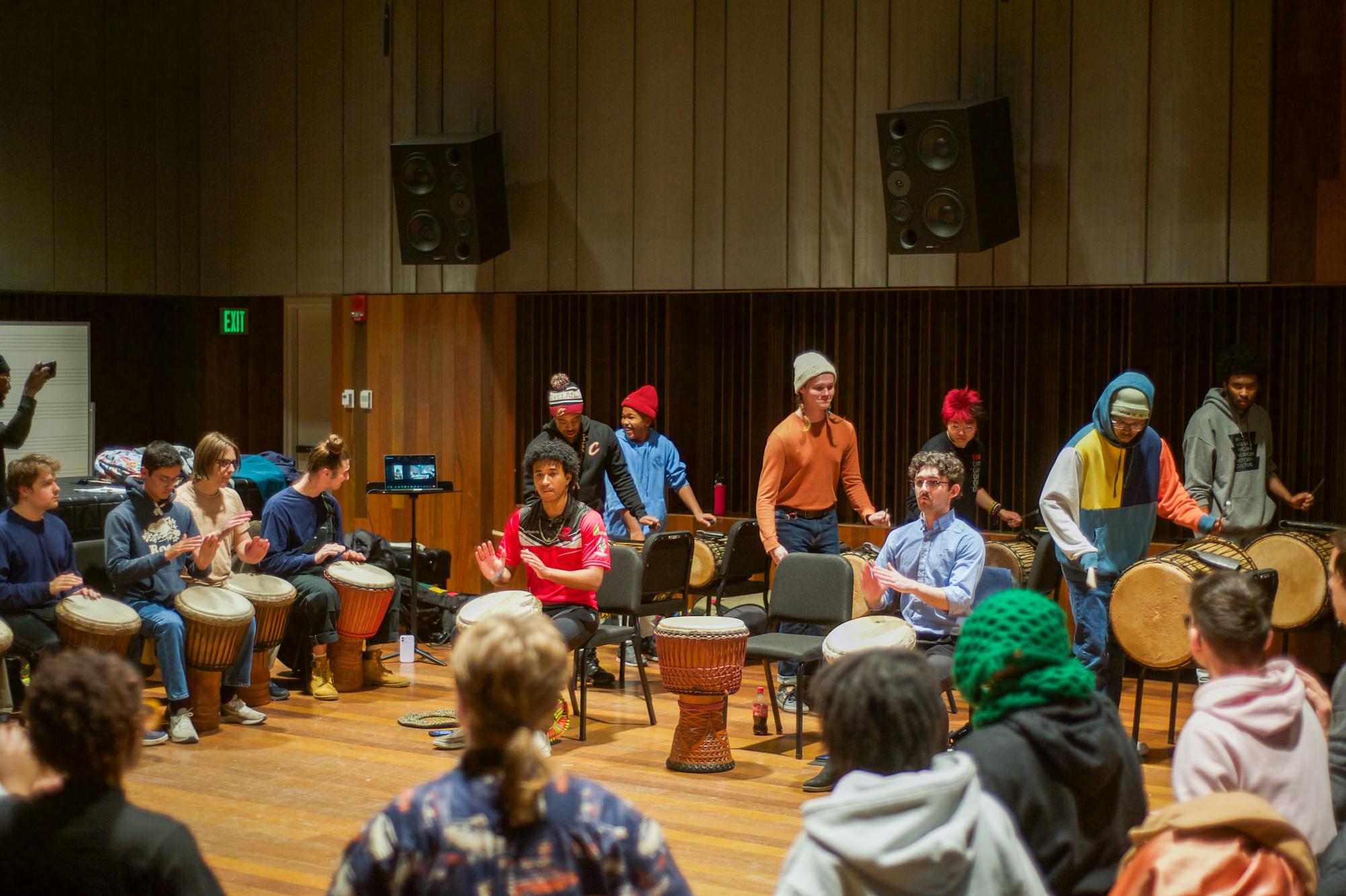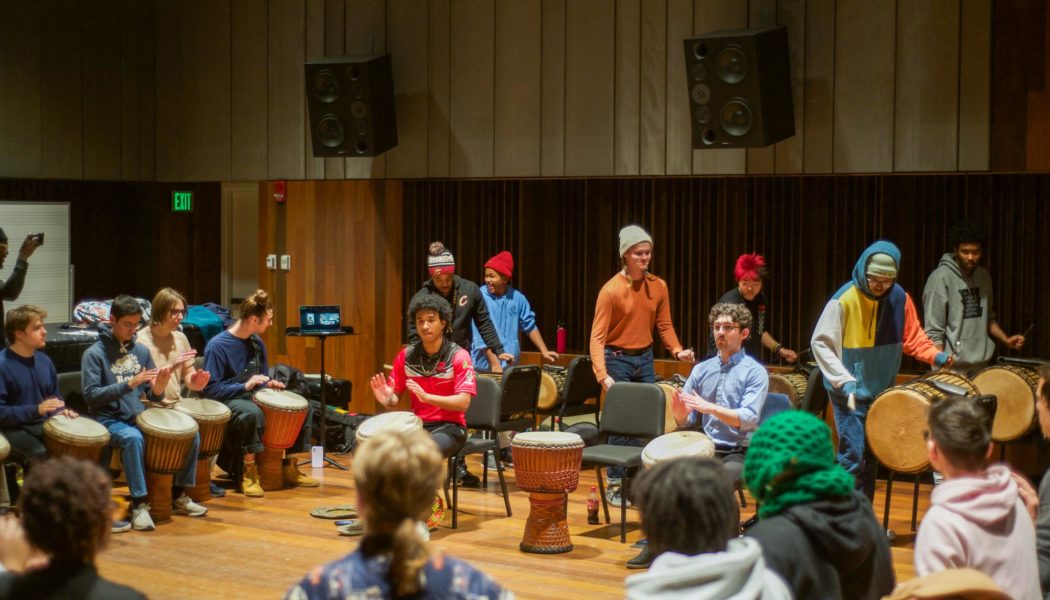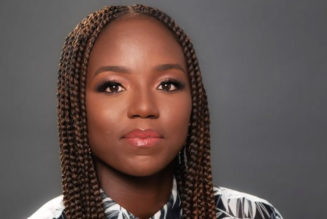
The Oberlin Djembe Orchestra, created by Visiting Instructor of West African Drumming Weedie Braimah in the fall of last year, asks students to reshape their understanding of music. Braimah, a Grammy-nominated djembefola, offers a window into West African culture in his course. Braimah, who was born in Ghana and grew up in St. Louis, is not a percussionist — he plays only one instrument. His work collaborating with artists and teaching has aided in keeping the djembe tradition alive.
“One of the first things [Braimah] tells us is that if you’re coming to this class to be in a drum circle or improve your rhythm and beat counting, this class is not for you,” College fourth-year Chudi Martin Jr., who has been playing with the Djembe Orchestra since its inception, said. “The expectations, demands, and needs of this course are going to be drastically different.”
Many believe the origins of the djembe can be traced back to the 12th Century. Historians generally credit blacksmiths in the Malinke tribe of modern-day Mali for stretching the first rawhide across a djembe. As the empire of Mali expanded, and people migrated to modern-day Senegal, Mauritania, Guinea, and beyond, djembe music evolved and diversified. According to their descendants, the word djembe comes from the saying, “anke djé, anke be,” which means “everyone gather together in peace.” This also defines the djembe’s main purpose.
Since the Djembe Orchestra is open to Conservatory and College students, it provides a unique experience. No audition or prior knowledge is required. Regardless of previous proficiency in other forms of music, students must relearn their approach to creating sound. In order to fully immerse oneself in these traditions, they must strip away the rigid structures of sheet music and conductors. This opens up opportunities for students without formal music backgrounds to expand their horizons.
“I would say this class is by far the coolest one I’m taking,” first-year Conservatory percussionist Dempsey Miller said. “It’s an orchestra unlike any other, and it’s a unique feeling to be immersed in such powerful music. Another reason this class is so unique is there are so many people in it from the jazz department who all play different instruments, and it’s really cool to be connected through this music even though we all have different backgrounds.”
Jazz musicians, classical percussionists, and College students enter Braimah’s orchestra on equal footing.
“[The Djembe Orchestra] evolved and shaped the way that I play music,” Martin said. “The way that I’ve been able to show up in spaces in the world and places that I’m going to now, it’s changed my life.”
For Martin, a College student, a solo opportunity drastically changed the way he approached music.
“Weedie asked, does anyone else want a solo?” Martin said. “And I’m sitting there, thinking all these kids have been playing music for their whole lives, and I just started with djembe. And I’m like, ‘You know what Weedie? I think I want to take a solo.’ And he trusted me. Since then, I’ve played in plenty of shows and people have come up to me saying the way I played really hit something in their heart, and they wanted to move, they wanted to dance. Those moments have made me realize that, wow, I really do play this instrument.”
In order for the Djembe Orchestra to thrive, traditional Conservatory mindsets and customs must be questioned. There is no sheet music. Performers sit in a circle, modulating polyrhythmic beats and singing in call-and-response. Rather than seeing music on a page and playing it, djembe promotes a culture of “if you can say it, you can play it.”
“If we want these courses to exist and truly enrich the Conservatory, we cannot place Western understandings and Western constructs on these classes,” Martin said.
The Djembe Orchestra differs from any other Conservatory group and is recognized as a distinct practice, separate from jazz and classical traditions. Oberlin continues to make space for diverse musical practices.
On Dec. 5, the Djembe Orchestra is scheduled to hold a performance in Warner Concert Hall. Braimah’s course attempts to explore the foundations of the instrument. Braimah not only teaches the sounds and techniques of West African djembe, but the philosophies and ways of life of that region’s cultures. Students have bolstered their musical development with knowledge of the languages and history of West Africa. This concert will showcase a variety of traditional Malinke rhythms, including Kassa, Kassa Soro, Kassa Dibon, Soli, Wolosodon, and more.
“[The concert] provides the chance for you to leave the outside world out there and just be immersed in West African life, culture, and music,” Martin said









